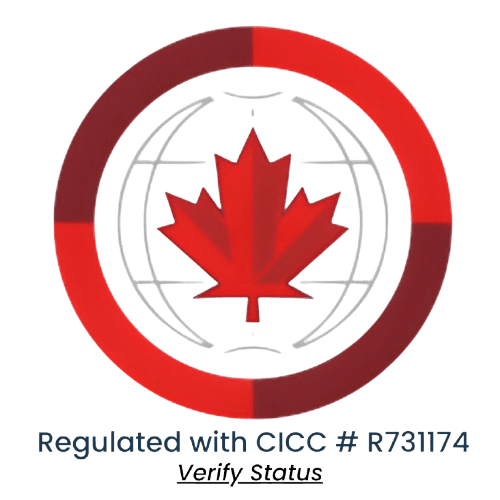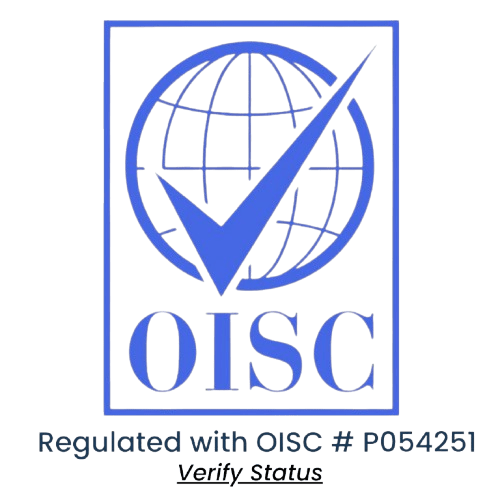1. Introduction
The Canadian Experience Class (CEC) is a popular pathway to permanent residency for individuals with skilled Canadian work experience. Part of Canada’s Express Entry system, it is specifically designed for temporary foreign workers and international graduates who have adapted to the Canadian labor market.
A core eligibility requirement for CEC applicants is having the right amount of skilled work experience in Canada. This program is ideal for individuals already working or who have worked in Canada and want to transition to permanent residency.
2. Key Takeaways
- The Canadian Experience Class (CEC) is aimed at individuals with skilled work experience in Canada.
- Applicants must have at least one year of skilled work experience in the last three years to qualify.
- Work must fall under National Occupational Classification (NOC) skill levels 0, A, or B.
- Part-time work counts if it totals 1,560 hours over three years.
- No job offer is required, but applicants must demonstrate legal and valid Canadian work experience.
3. What is the Canadian Experience Class (CEC)?
The Canadian Experience Class (CEC) is one of three immigration pathways under Canada’s Express Entry system, specifically designed for individuals with Canadian work experience. It targets temporary foreign workers and international graduates who have already spent time working in Canada and want to become permanent residents.
Unlike other Express Entry programs, the CEC focuses on candidates who have adapted to Canadian work culture and understand the labor market. It is popular because of its simplified requirements, particularly for those who already hold Canadian work experience and do not need to prove settlement funds or secure a job offer.
4. Eligibility for the Canadian Experience Class
To qualify for the Canadian Experience Class, applicants must meet specific eligibility criteria focusing on work experience, language proficiency, and intent to live outside Quebec. Here’s a breakdown of the requirements:
- Work Experience: You need at least 12 months of full-time skilled work experience in Canada within the last three years. This work must be paid and legal, with proper authorization, such as a work permit.
- NOC Classification: Your work experience must be in a job classified under NOC 0 (managerial roles), NOC A (professional jobs that require a degree), or NOC B (technical or skilled trades).
- Language Proficiency: You must meet the Canadian Language Benchmark (CLB) levels, with CLB 7 required for NOC 0 and A jobs, and CLB 5 for NOC B jobs. Language tests like IELTS or CELPIP are needed to prove proficiency.
- Intent to Live Outside Quebec: The CEC does not apply to those planning to settle in Quebec, which has its own immigration program.
5. What is Considered Skilled Work for CEC?
Skilled work for the Canadian Experience Class is defined by Canada’s National Occupational Classification (NOC) system. Only jobs categorized under NOC 0, A, or B qualify. Here’s what each category includes:
- NOC 0: Managerial Jobs
Examples:- Restaurant Managers
- Construction Managers
- Project Managers
- NOC A: Professional Jobs (require a degree)
Examples:- Doctors
- Engineers
- Accountants
- NOC B: Technical Jobs and Skilled Trades
Examples:- Chefs
- Electricians
- Plumbers
Work experience in NOC C (intermediate jobs) or NOC D (labor jobs) does not count toward CEC eligibility. Examples of ineligible jobs include retail clerks and construction laborers.
6. Work Experience Requirements for CEC: Full-Time vs. Part-Time
To meet the work experience requirement for CEC, applicants must complete the equivalent of one year of full-time work. Here’s how it breaks down:
- Full-Time Work
One year of full-time work is defined as 30 hours per week for 12 months, totaling 1,560 hours. - Part-Time Work
Part-time work can be combined to meet the 1,560-hour threshold. For example, working 15 hours per week for two years (24 months) equals one year of full-time work. Multiple part-time jobs can also be combined, as long as the total number of hours meets the 1,560-hour requirement.
The work must have been completed within the last three years before applying and must be legal, meaning it must have been authorized by a valid work permit.
7. How to Prove Your Work Experience for CEC
Proving your work experience is a critical step in the CEC application process. The documents you provide must clearly demonstrate your job duties, hours worked, and employment legality. The key documents include:
- Employment Reference Letters
These should be written on company letterhead and must include your job title, dates of employment, hours worked per week, and main job duties. Ensure that the duties listed match those described under your claimed NOC code. - Pay Stubs and Employment Contracts
Pay stubs help prove the legality of your work and the number of hours you worked. Employment contracts can further validate the details of your position. - Tax Documents
Submitting tax documents such as T4 slips (if applicable) can verify that you were legally employed and paying taxes in Canada.
It is essential to ensure that the information on all your documents is consistent and accurately reflects your work experience under the correct NOC code.
8. Ineligible Work Experience for CEC
Not all work experience qualifies for the Canadian Experience Class. The following types of work are ineligible:
- Self-Employment: Work completed as an independent contractor or business owner does not count toward the work experience requirement.
- Unauthorized Work: Any work performed without a valid work permit is not eligible.
- Work Completed While on a Student Visa: Full-time work completed while studying (such as co-op programs or internships) does not qualify, as the primary purpose of your stay was education, not employment.
9. How to Improve Your Chances of Meeting CEC Work Experience Requirements
If you’re falling short of the work experience requirement, there are several ways to improve your chances:
- Gain More Work Experience: Extend your work permit to gain additional Canadian work experience, ensuring you reach the required 1,560 hours.
- Switch to NOC-Eligible Jobs: If your current job is ineligible (NOC C or D), seek employment in an NOC 0, A, or B position. This switch will allow you to accumulate the necessary skilled work experience.
- Work Part-Time: If full-time work is not an option, part-time work can still count as long as you meet the total required hours (1,560 hours). Consider taking on multiple part-time jobs if needed.
10. Work Permit and CEC Eligibility
A valid work permit is crucial for acquiring eligible work experience under the Canadian Experience Class. Some common work permits that qualify include:
- Open Work Permits: These allow you to work for any employer and are common for international students and post-graduation work permit (PGWP) holders.
- Employer-Specific Permits: These allow you to work for a specific employer, as authorized by your work permit.
Work completed without proper authorization or after a work permit expires does not count toward CEC eligibility. If your work permit is close to expiring and you need more work experience, you can explore options to extend it.
11. FAQs about Work Experience Requirements for CEC
- How much work experience is required for CEC?
You need at least one year of full-time skilled work experience (1,560 hours) in Canada within the last three years. - Does part-time work count toward CEC?
Yes, as long as it adds up to 1,560 hours within three years. - Can I count work done on a student visa for CEC?
No, work experience gained while studying full-time does not count toward CEC. - What if I have self-employment experience in Canada?
Self-employment does not count toward the CEC work experience requirement. - Can I apply for CEC if I don’t have a job offer?
Yes, you do not need a current job offer to apply under CEC, but your past Canadian work experience must meet the requirements.




